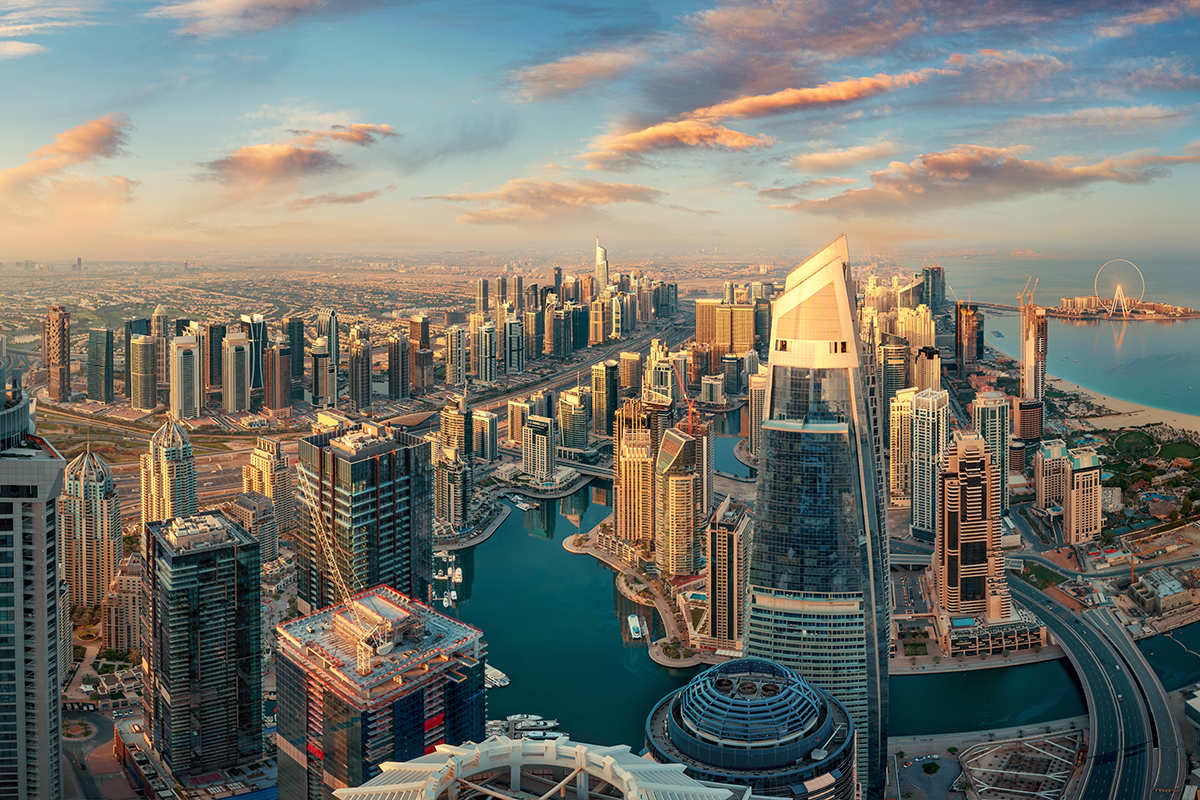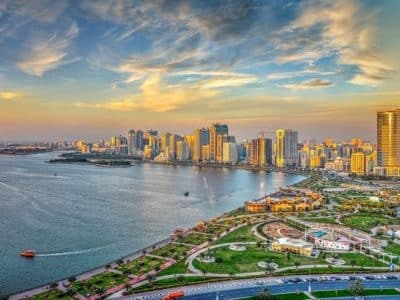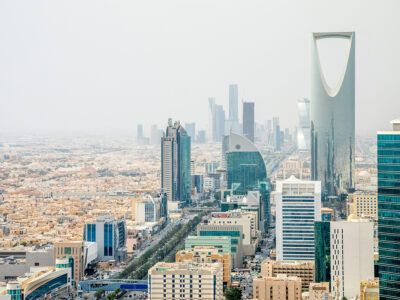The UAE real estate market continued to outperform global benchmarks in the first half of 2025, delivering returns across core sectors despite tighter global conditions, a new report finds.
Cushman & Wakefield Core’s mid-year commentary noted that scarcity remains a defining feature of the market, although capital deployment has become more selective across maturing asset classes.
PP Varghese, Head of Professional Services at Cushman & Wakefield Core, said: “Institutional capital still sees the UAE as one of the few global markets offering yield, visibility, and long-term upside – but underwriting assumptions are shifting. Scarcity remains, but pricing power now belongs to assets with the right ESG profile, location and covenant strength.”
Office occupancy in UAE nears capacity as rents continue to rise
In Dubai, citywide office occupancy reached 92 per cent, with Grade A assets at 95 per cent. Average rents rose 22 per cent year-on-year to AED 190 per sqft, with the Dubai International Financial Centre (DIFC) seeing the highest premiums.
New supply for 2025 is limited to 0.89 million sq ft, while 6.4 million sq ft is expected from 2026 onwards. Many of these future developments are already seeing strong pre-leasing interest.
In Abu Dhabi, Grade A occupancy stood at 97 per cent and overall occupancy at 90 per cent.
Asking rents rose 11 per cent year-on-year to AED 160 per sq ft. Over 830,000 sq ft of new office supply is expected in the second half of 2025, mainly in Masdar City and The Link, with most of this space already pre-committed.
UAE residential market sees divergence between Dubai, Abu Dhabi in H1 2025
Dubai’s residential sector showed signs of moderation. In Q2 2025, average sales prices reached AED 1,822 per sq ft, marking a 14 per cent year-on-year increase.
Rental growth slowed to 7 per cent. Nearly 43,000 new units are expected in 2025, the highest total since 2019. Mid-market apartment demand has softened, while villa communities have remained stable.
In Abu Dhabi, residential sales prices rose 18 per cent year-on-year, with Saadiyat Island increasing 30 per cent to AED 4,172 per sq ft. Rental growth stood at 27 per cent, with strength across apartment segments.
More than 3,600 units are expected to be handed over on Yas Island in 2025, supported by pre-sales and structural demand.

Retail rents rise as UAE landlords focus on tenant strategy, localisation
Retail occupancy across the UAE exceeded 95 per cent. Rents at super-regional malls in Dubai, such as The Dubai Mall and Mall of the Emirates, increased 12–15 per cent year-on-year.
Landlords are shifting focus from pure occupancy towards destination curation, with a preference for homegrown food and beverage anchors and international brands that adapt to local markets.
Retail strategies are becoming catchment-specific, with different approaches applied to Emirati communities compared to expat-driven areas.
Community retail hubs and hybrid lease models are gaining relevance, in alignment with the Urban Master Plan 2040 and evolving consumer behaviour.
Industrial real estate in UAE faces supply constraints, ESG demands
Sustained demand and limited supply have driven up industrial rents. Vacancy for Grade A warehouses remains low, with high demand from the e-commerce, manufacturing, and chemical sectors. ESG-compliant and climate-adaptive infrastructure are commanding pricing premiums.
The UAE’s infrastructure, multimodal logistics access, energy costs and workforce capacity continue to attract occupiers, despite the upward trend in rental rates.
Abu Dhabi and Dubai also ranked first and second globally among emerging data centre markets. Over 750 MW of capacity is under development, with the UAE’s data centre market projected to reach a value of $3.3 billion by 2030.
Land availability, cost-effective power, and sovereign-aligned infrastructure are supporting growth and attracting institutional investment.
Dubai hospitality sees 8.68 million visitors in five months, up 7% Year-on-Year
Dubai hosted 8.68 million visitors between January and May 2025, up 7 per cent year-on-year. Full-year visitation is forecast to reach 20.8 million, a 21 per cent increase compared to 2024.
Citywide occupancy stands at 83 per cent, with an average daily rate (ADR) of AED 620 and revenue per available room (RevPAR) up 7 per cent.

Abu Dhabi recorded 1.52 million occupied guest nights, with occupancy at 87 per cent and ADR at AED 614. Domestic travellers accounted for nearly 20 per cent of demand, supported by new cultural and cruise-related infrastructure.
In Dubai, 78 per cent of visitors originated from the CIS, GCC, MENA, Western Europe and South Asia. Both emirates are experiencing longer guest stays and shifts in global leisure and business travel patterns.
“From tourism infrastructure to industrial zones, the UAE is showing that growth and resilience are increasingly tied to planning, execution, and tenant alignment. The market has matured, and that means performance will come down to asset-level detail,” Varghese added.
The second half of 2025 will test the market’s response to deeper segmentation, with 43,000 residential units scheduled for delivery, 6.4 million sq ft of upcoming office space, and continued expansion in the data centre sector. Capital remains active, but performance will depend on asset-level discipline.








